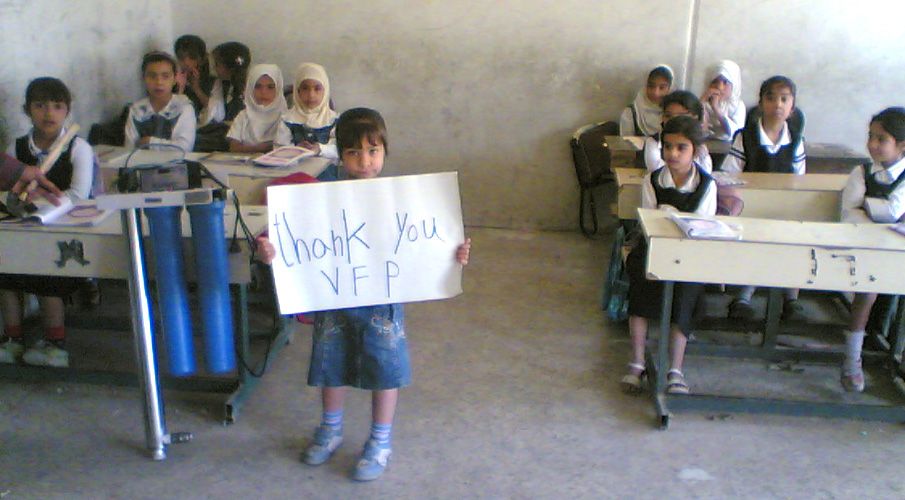
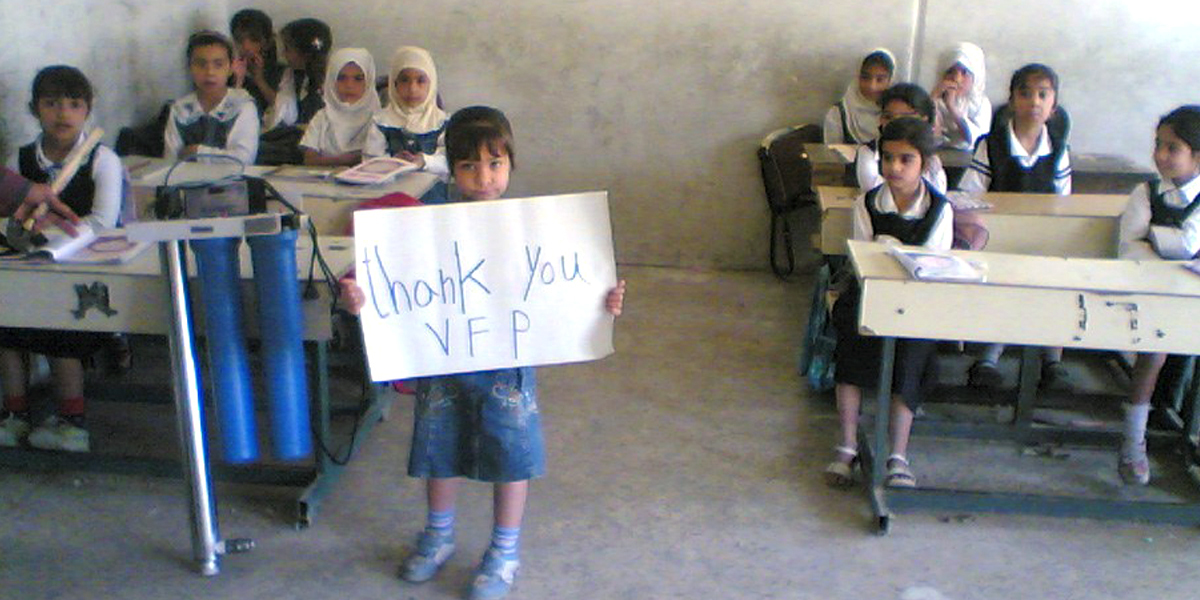
In war, natural disaster and poverty, water is the first relief to arrive alongside the security of life and limb. It is the gift that aids the weary traveler, sits at the table before a meal arrives. The lack of it kills before the lack of food does. It is not a commodity, as in the Bolivian Water Wars that fought the privatization of public wells, but rather it is a human right. So when the United Nations sanctions against Iraq in the 1990’s stressed schools and hospitals to the point of disrepair and abandonment of their wells, human rights activists stepped in.
In 1999 a group of veterans, working through Veterans for Peace, founded the Iraq Water Project, with a mission to improve the health prospects of some part of the Iraqi population dependent upon water treatment facilities in desperate need of repair. Once a site is selected, usually a school or clinic, a 3-stage filtration unit, with reverse osmosis and ultraviolet light treatment, is set up to clean incoming water from a river, well or municipal source.
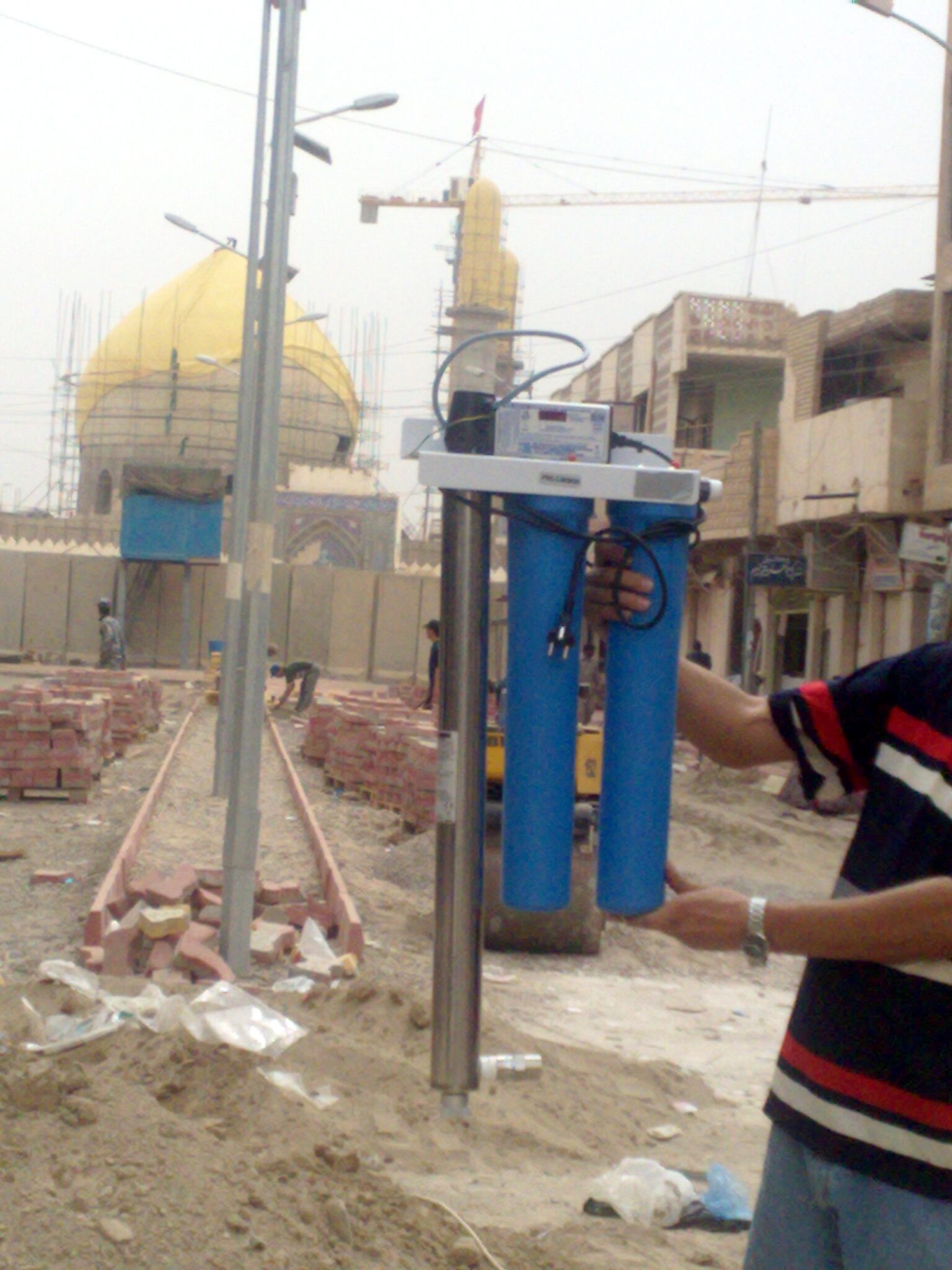
To date, 160 units are in place mostly in schools and clinics across Iraq. We’ve installed one filter unit in an orphanage, a refugee camp, six prisons, including Abu Ghraib, which is now closed, and the alAskari shrine in Samarra, the one that alQaida bombed back in 2006.
Our partner, Muslim Peacemaker Teams, installed five units in Najaf schools, while Life for Relief and Development, an American Islamic NGO, installed two units in schools in the Diyala Province (east-central Iraq). For reasons of security we cannot name the group we work with in Nassiriya that installed four water treatment units in the new Nassiriya Heart Center and another four in local schools. These organizations are doing the lion’s share of the work, taking responsibility for the installation, security and maintenance of the water filter units, providing citizens with a basic human right—access to clean water.
What’s come of this investment are positive unintended consequences that have exceed our expectations, both social justice and conservation. By contributing to the relief of someone’s suffering, a wonderful sense of humility and joy emerges, especially among the U.S. veterans participating in the project, which I can attest to personally. More importantly, lives are saved, dysentery among small children and water-borne illnesses have been reduced where the water filters are installed. Unexpectedly, the water filters serve not only the schools and clinics, but they become a community hub—a meeting place. The goodwill that emerges from Iraqi organizations managing their own recovery and the relationship that forms between Iraqis and American citizens is invaluable. There is reconciliation and atonement, which are hard to find.
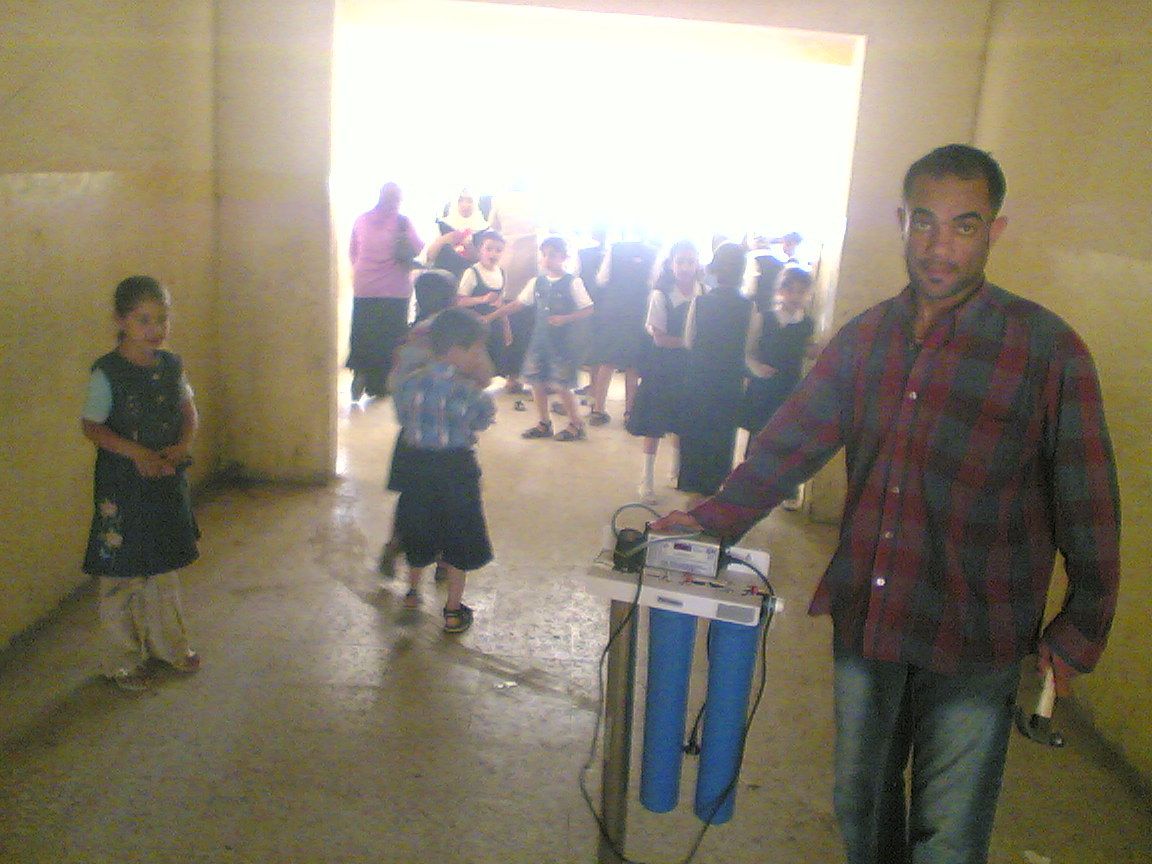
Interestingly, giving water contributes to solving another problem: plastic pollution. Often when relief aid is sent after a natural disaster or during civil unrest, it comes packaged in stuff that becomes garbage. Water bottles by the millions are strewn across villages in Iraq, reflective of the years of poor waste management, garbage from war and relief aid. American bases established in Iraq employed “burn pits” to incinerate garbage. The same burn and bury strategy exists in villages across the country, sending acrid smoke into communities. Iraq’s waste problem contributed to public outbreaks in cholera and dysentery, and roadside bombs found ample trash piles to be concealed within.
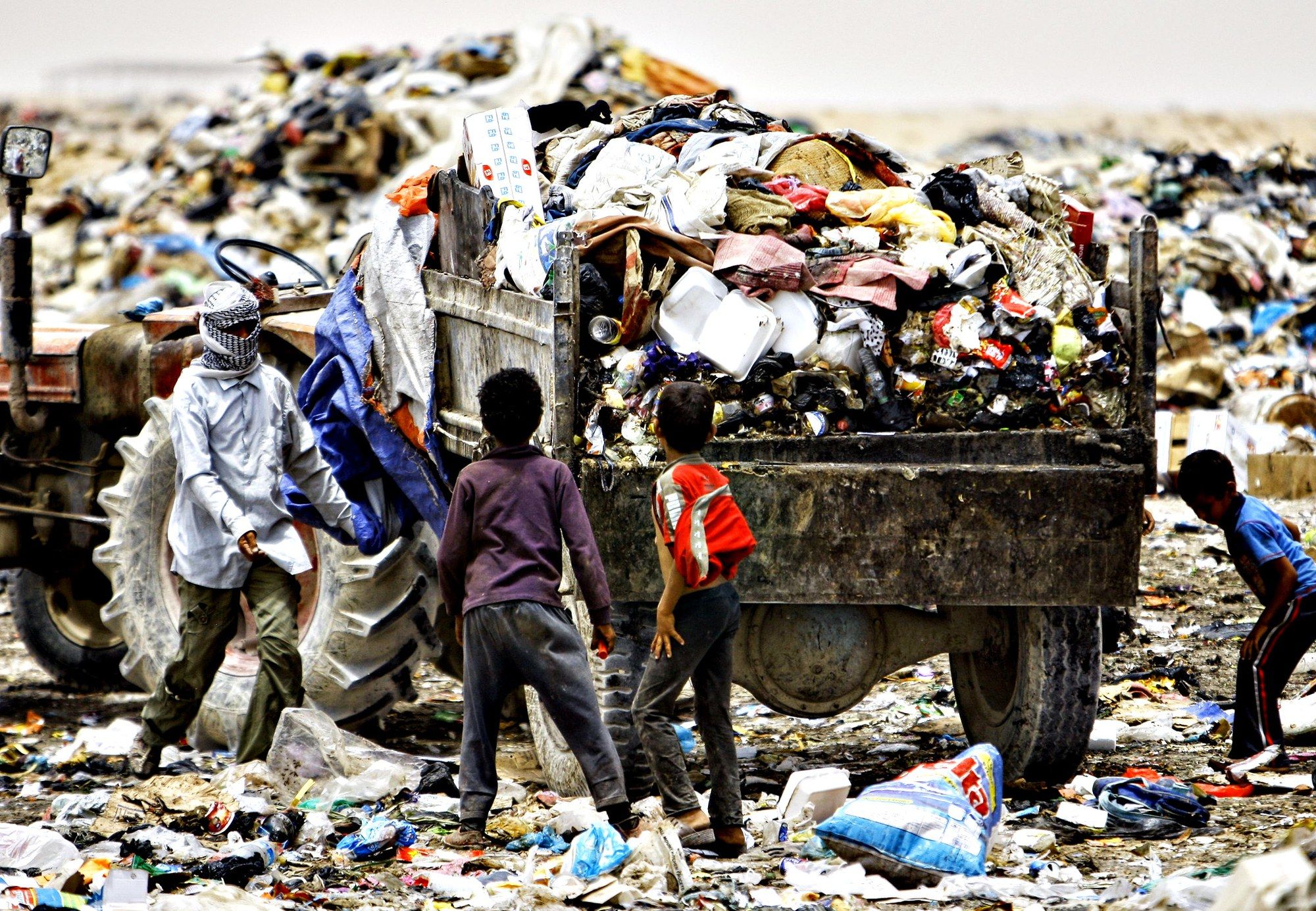
One water filter can sustain daily drinking water for 1,000 residents for up to 3 months before filters need to be changed. The same volume would exceed half a million 1 liter plastic water bottles. By providing the “means to fish, rather than the fish itself,” access to water becomes seemingly endless. But in today’s political climate in Iraq, there are continued challenges to keep these water filter units operational.
Therefore, what continues today is maintenance and new installations of water filter units where they are needed. We recognize that past sanctions, war and poverty, exacerbate suffering, but sharing this gift is contributing to Iraq’s recovery in sometimes unpredictable ways. It all begins with water.

 233k
233k  41k
41k  Subscribe
Subscribe 
